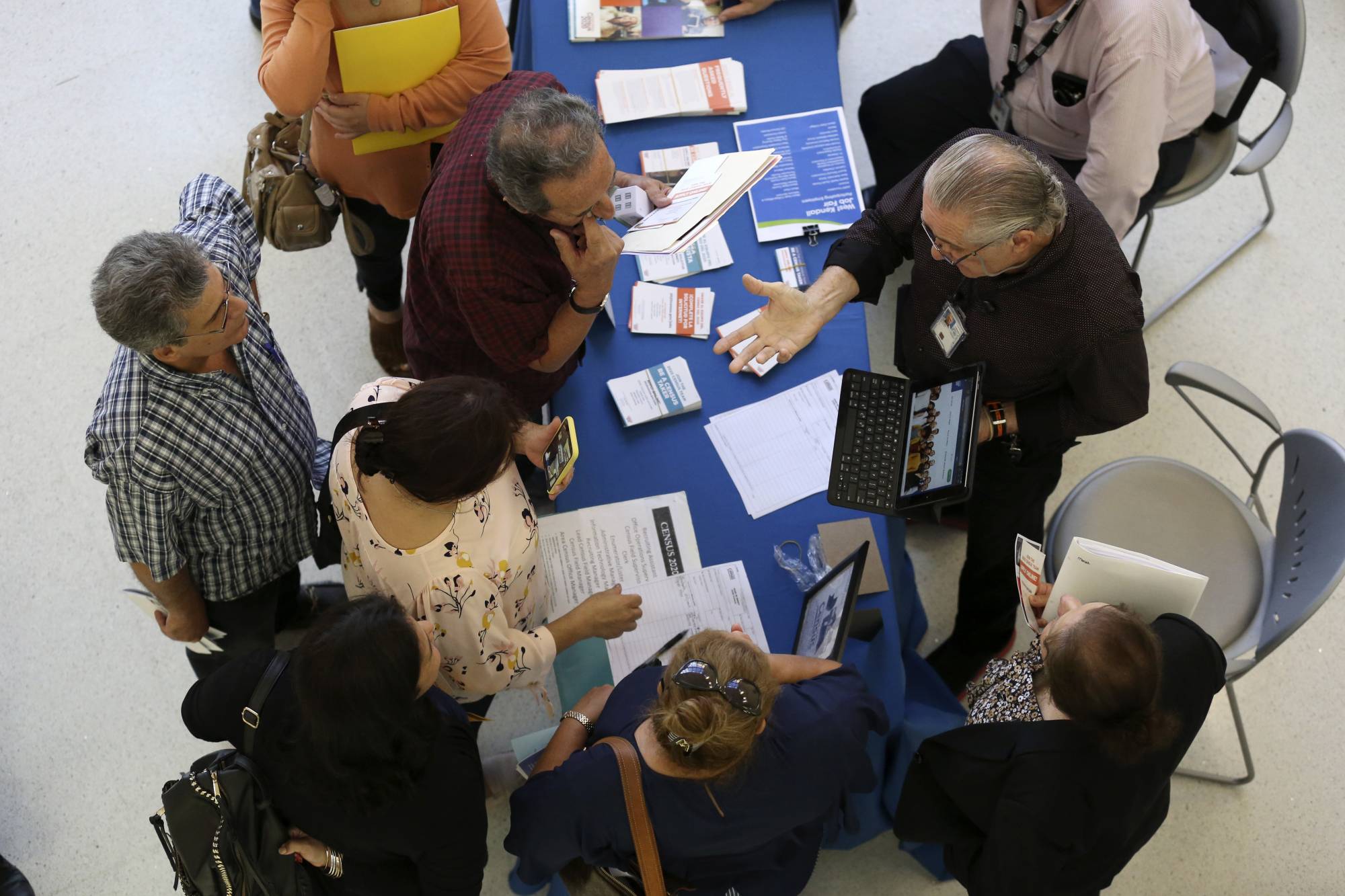Hubbard Radio Washington DC, LLC. All rights reserved. This website is not intended for users located within the European Economic Area.
Insight by NCMA
NCMA Insights: How interactive procurement contracting is changing the training landscape
The Federal Drive's Tom Temin and the Army's Dustin Pritsch discuss how interactive procurement contracting is changing the training landscape at the National C...
August 22, 2023 8:02 am
7 min read
Tom Temin My guest is Dustin Pitch. He’s the future workforce capabilities lead for the Army Contracting Enterprise. Dustin, good to have you with us.
Dustin Pitsch Thanks a lot. Glad to be here.
Tom Temin All right. You helped develop something called a interactive procurement contracting game. What does that mean? What do you use it with?
Dustin Pitsch Yeah. So it’s a game to work at better training our workforce to actually do their job better. So we have a lot of existing training in the Department of Defense and in the Army that gets folks up on the knowledge, gets them awareness, tells them about the policies and the regulations. So we give them the rules. We tell them what the playing field looks like, but we don’t necessarily show them how to do their job. So this is about actually practicing simulating your actual work when you leave the training class and you go and actually apply. So it’s allowing them to practice that application of your job, which is something above and beyond what we have out there today.
Tom Temin Interesting. So this is for contracting officers, contracting specialists, COs, [contracting officer’s representatives]?
Dustin Pitsch Absolutely. So anyone involved in or around the contracting process would be informative to help them understand why, even from the requirements development side, understanding what is the [contracting officer] CO looking at. They’re reviewing that package and we want to train them to do the critical thinking involved in what things do I need to look at and check, cross-reference, make sure everything’s consistent in your package. But it also has potential for a recruiting site. So someone that say is at a recruiting fair, we can have that game out there. They say, what’s contracting? Well, here, why don’t you come look at this game? So we have a couple of different ways that we can utilize it.
Tom Temin And why does the Army call COs KOs?
Dustin Pitsch The commanding officer, I believe. I’ve never actually been in the service, but I believe it’s generally KO because commanding officer is CO and so it’s easier.
Tom Temin So if I’m the CO, you’re the KO. That type of thing probably happened apocryphally a long time ago. Got it. Well, is this game intended only for newcomers, or is it something someone mid-career could brush up with?
Dustin Pitsch So some folks could. I think the mid-career folks, when we have them play, we generally want to get their input, really, because they have that experience. They say, well, you’re doing this wrong. We aren’t actually doing that like that anymore. So to get their feedback on it, how to develop it better. But current state, what we have developed, it’s a proof of concept. It’s very beginner based. But we have some more development ongoing now that we’ll build it out to some more complex scenarios. It would be more appropriate for that person that’s got the five years of experience, a few years under their belt, but they need to either brush up or they’re getting into a new type of buying.
Tom Temin So maybe from like platforms and hardware to services or to software?
Dustin Pitsch Exactly. Or even moving from those things to buying construction. You’ll have scenario where you’re getting because there’s some different intricacies and details.
Tom Temin Often overlooked, I guess, by the general public is how different each of those domains really is in terms of how you specify, how you set up contracts and acquisition.
Dustin Pitsch Yeah, absolutely. The way you go about putting the contract together, the clauses, the provisions for the solicitation is very similar and we have plenty of training on that. But the actual what are you doing from day one through getting a solicitation out and reviewing once you have the offers in, this can be very different.
Tom Temin Yeah that’s the big challenge is that you have to be compliant, and your contracting terms have to be all in there. You have to have your contract writing system produced what it is that’s correct. But at some level, all of that can make you lose sight of ‘what am I actually doing here?’
Dustin Pitsch Exactly. We want the folks to be adding value through their critical thinking, not just checking the boxes. This clause, that clause. We want to train them to follow the rules so they know the rules. But that’s not how you train someone to play baseball. You don’t hand them the rule book and say, now that person knows how to play baseball because they memorized the rulebook. You want to get them actually working and thinking. That’s the value that humans add to the process. I know we have computers working on some of those processes; humans are going to be in the loop always.
Tom Temin Yes, they sure will. We’re speaking with Dustin Pitsch. He is the Future Workforce Capabilities lead for the Army Contracting Enterprise. Now you call this a game. Tell us how it works. It’s not just a set of Q&A, yes or no, true or false?
Dustin Pitsch Yeah. So when you when we started the project, it really how do we get it to be something more than just a quiz. So we created some characters. It’s not Fortnite, it’s not Fortnite. It’s not a shooter game, though you may have heard about some of the the shooter games that some folks had that have kind of a quiz built into it. We have questions throughout, but we’ve got actual lookalike documents that someone would have, that we have a requirement for you to buy some weapons and then the person goes through those documents just like they would, and then they interact. Sometimes you have to send send them back to the office that created them to have them make some corrections or changes or clarifications. So it’s kind of simulating those interactions with some knowledge checks along the way, as well as we utilize some references to some of our other reference materials that we want our folks to use. We send them directly to those sites to actually utilize the tools they would be using when they’re doing that as well. So if you need a template for, you know, putting out a solicitation, we can reference you directly to where you can find the templates for that type of solicitation.
Tom Temin So this game needs constant attention in terms of making sure that what it invokes is the latest?
Dustin Pitsch Well, when you’re dealing in regulations, policies, which is our office here, it’s an always ever-changing environment. So absolutely, there’ll be tweaks here or there. We count on our field. We have a very astute field at calling out corrections and changes in requirements, in policy. So it’s never going to be something you can just let go. But that’s the realm we’re in.
Tom Temin No set and forget. And just if you would just give us a sense of the scope of the Army Contracting Enterprise because you do deal, I mean, the Army deals with [the Defense Logistics Agency] and other sources of supply. So what are your boundaries for what is overseen by the Army Contracting Enterprise?
Dustin Pitsch Well, so when we say Army Contracting Enterprise, we’re talking about about 8000 to 9000 — depending on who you want in there — individuals, primarily 1102 contract specialist, contracting officers, procurement analysts, There are about 6600 of those all across the world from our major commands.
Tom Temin All right. So what are they buying? What’s the scope of what they buy?
Dustin Pitsch So we’ll say from our mission statement, where we’re the enablers for the Army mission, they’ll buy anything that — forget all the lines — that we wear, shoot, drive, launch, eat, consume. Buy everything. Everything that the Army needs.
Tom Temin How do you interact with Defense Logistics Agency, which supplies a lot of commodities like that?
Dustin Pitsch Well, within the requirements, there are certain things that we source directly to them and have agreements with. So since I actually came up with the Defense Logistics Agency buying fuel.
Tom Temin Gasoline is gasoline, whether it’s the Navy or the Army.
Dustin Pitsch Well, it is. But, you know, depending on if you’re fueling on a boat, via land or sea, different specifications. So there’s a lot of intricacies in that as well. But we use a lot of it.
Tom Temin All right. Excellent. My guest has been Dustin Pitsch. He is the Future Workforce Capabilities lead for the Army Contracting Enterprise. Thanks so much.
Dustin Pitsch Thanks a lot.
Copyright © 2024 Federal News Network. All rights reserved. This website is not intended for users located within the European Economic Area.
Related Stories
Related Topics




